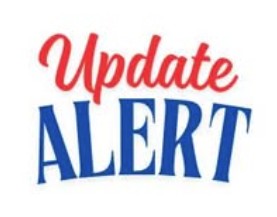To read about the current Legislative Concerns, Click below:
Why is it Important to Monitor Legislation?
First off, the historic definition of legislation is: “the proposing of a law or laws.”
Today most legislation being proposed comes in the form of a “Bill”. In most cases a Bill is the actual law intended by the writer. Bills may include an introductory summary of what a new law would do, who would enforce it, and often how it may affect the community, at large-but these summaries can be misleading. Bills are proposed by your representatives, but often originate from one or more lobbying organizations. Animal Rights and Animal Welfare organizations that have a lobbying arm will often draft the Bill and present it to their representative for introduction into the local, State, or Federal system. These groups have agendas that rarely coincide with the general public’s views or needs.
AFA is concerned about Bills that have a negative impact on the keeping of pet birds, breeder birds, exhibit birds, and more. Sometimes it is difficult to understand why a certain Bill may affect bird owners. For example, often local laws are proposed or enacted that limit the number of dogs or cats one household may own; local Bills are referred to as “ordinances”. In many cases an ordinance may seem to be a “fair” and a potentially useful law. Animal ordinances usually start out with numerous listed animal subjects, ie.: dogs, cats, fish, birds, primates, and others. So, consider you are a canary breeder and have 6 pairs of canaries in your home. If a law is passed allowing only six dogs or cats per household, and it is amended later to include birds (or any other animals too, like hamsters, fish, etc), suddenly you are in violation of the ordinance and may be fined or taken to court.
Ordinances are civil, not criminal. Example: If an ordinance prohibits an inoperable vehicle on a residential property, there are usually fines assessed. The owner isn’t arrested or charged criminally but if they do not remove the car or fix the problem, they can be taken to court. A judge enforces the problem and will threaten the vehicle owner with more fines or being held in contempt of court.
Laws and Ordinances are not amended without being voted on by the city council, county board, State General Assembly or the US Senate and US Congress. Regulations (the rules under a law) may be changed without being voted on by elected officials, but there is a process that has to be followed. Example: USFWS adding a species to the Endangered Species Act.
The AFA Legislative Committee, along with several other animal keeping organizations in the United States, monitors legislative efforts to stop the keeping of birds. They may get excited over a proposed law that seems to have nothing to do with birds, ie: a local circus prohibition act, but that is because they have the experience to know that certain wording in these Bills will allow an unchecked amendment to include other animals or birds later. The amount of anti-animal use Bills being introduced on the local and State level right now is astounding! The verbiage in a Bill may “insinuate” they will be eliminating inhumane treatment, or overpopulation, but in the end the regulations written under that law may prohibit the keeping of pet birds or certain types of birds completely.
Keep up with the Bills and laws being proposed in your area and/or State. Check out our page “Current Legislative Issues” under the Legislation tab in our main menu. Proposed legislation may not have an immediate effect on you and your birds, but if passed in other States, it becomes easier to propose in others. Eventually birds or any business to do with birds may be eliminated from our lives.
More Links:
Legislation 101: Training Course
USDA Regulation: Animal Welfare Act

